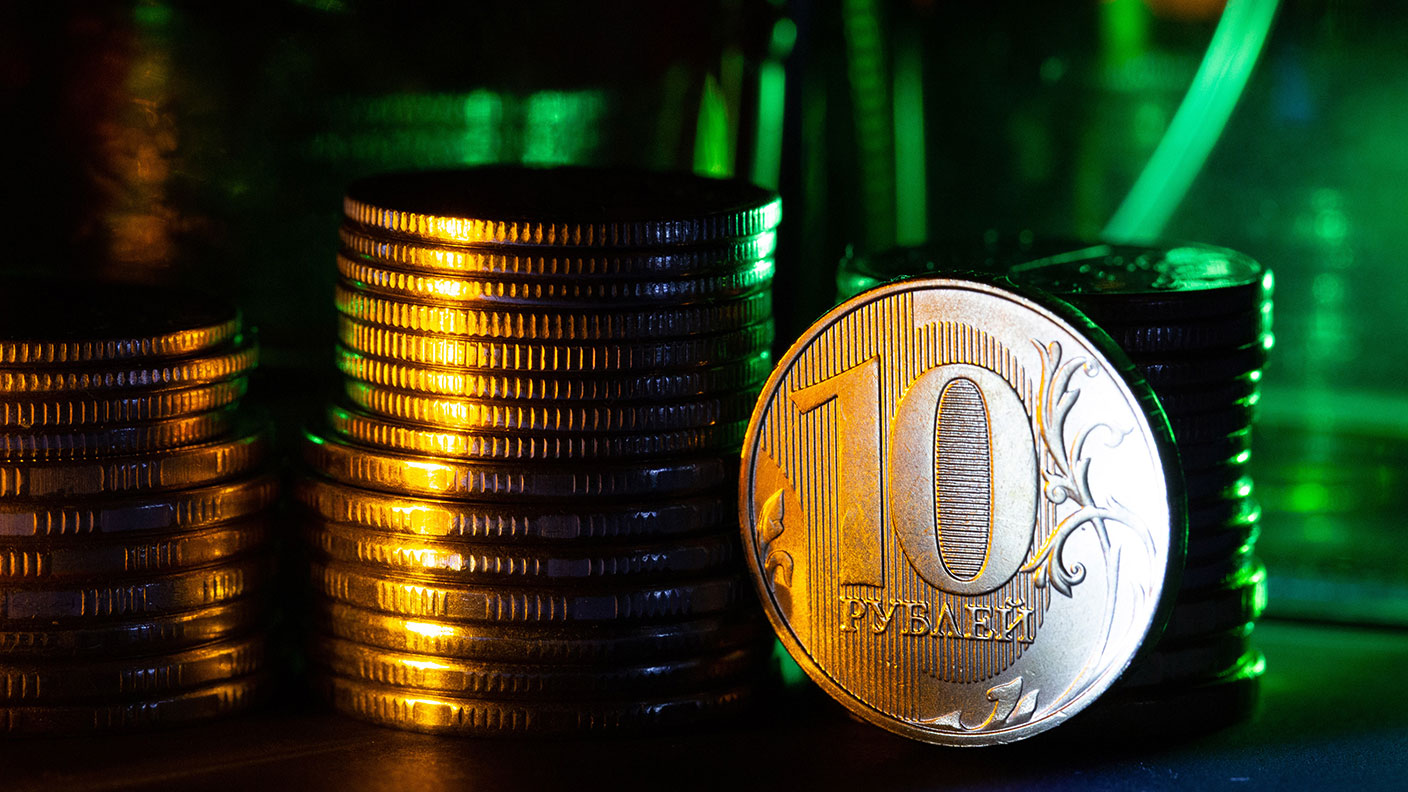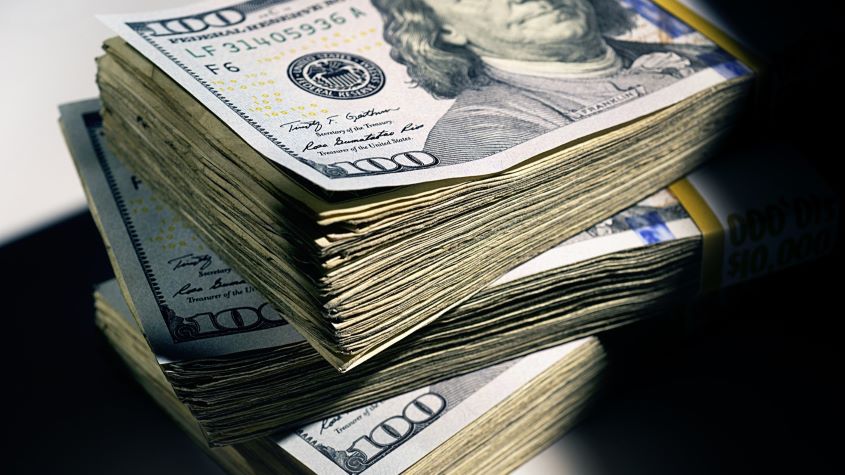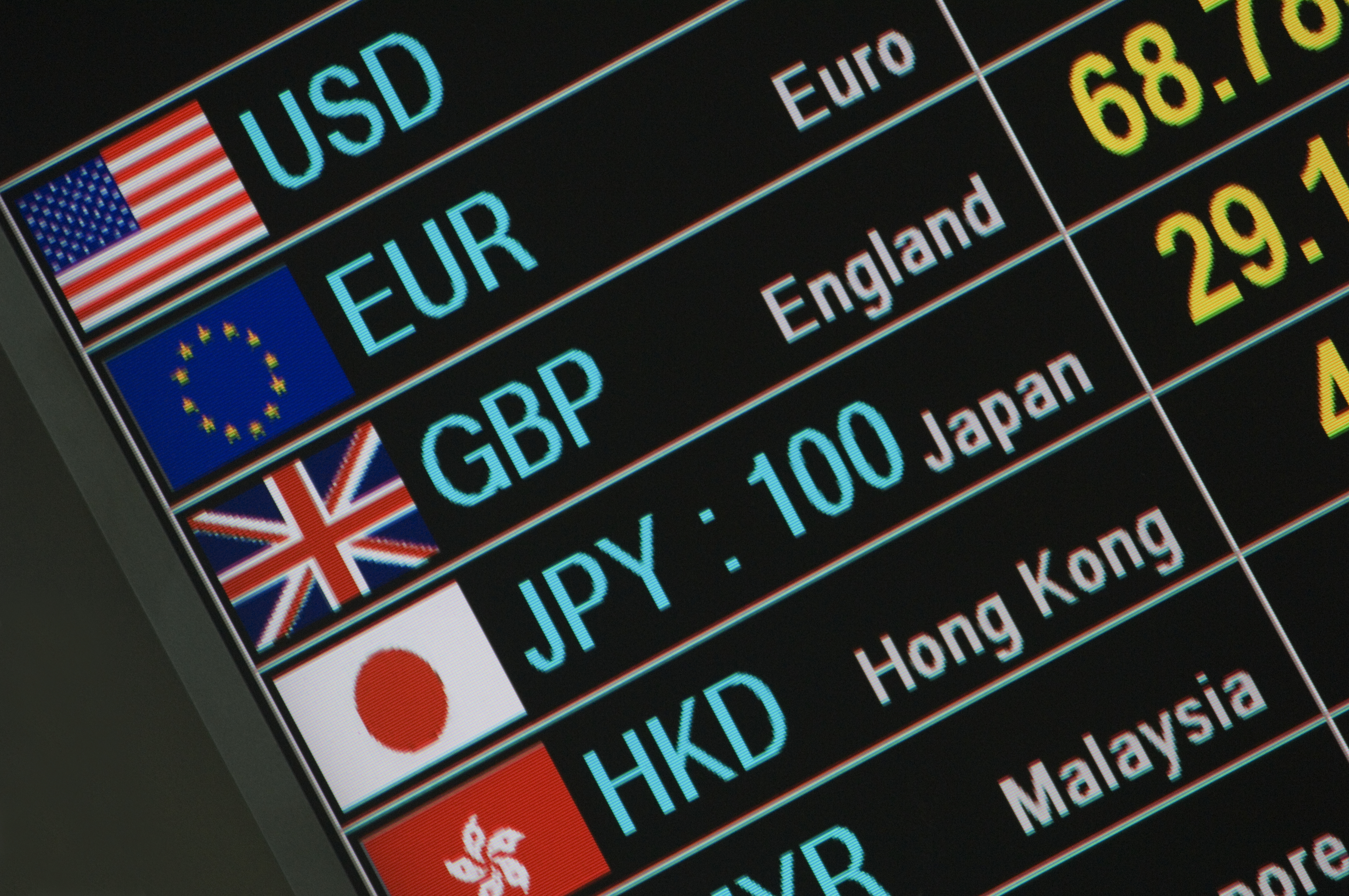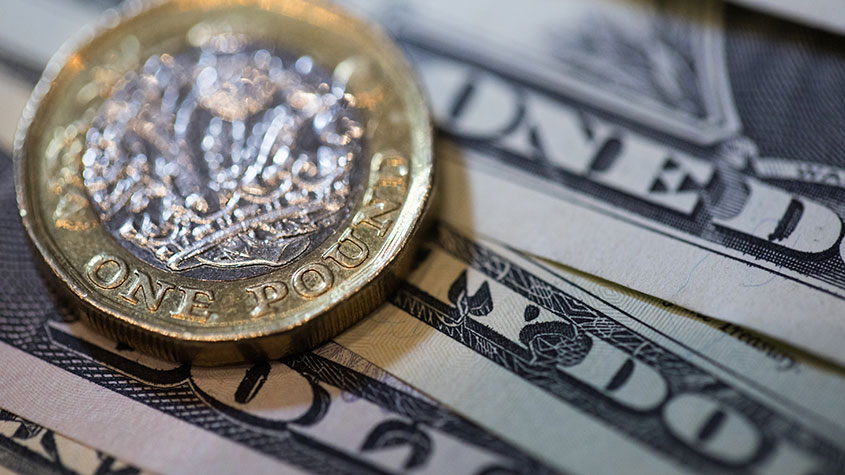Does Russia's move to price energy in roubles threaten the US dollar?
Russia is no longer accepting dollars as payment for its energy. Could this threaten the dollar’s status as global reserve currency? John Stepek is not so sure.


Get the latest financial news, insights and expert analysis from our award-winning MoneyWeek team, to help you understand what really matters when it comes to your finances.
You are now subscribed
Your newsletter sign-up was successful
Want to add more newsletters?
There's been a lot of excitement (if that's the right word) over the idea that Russia is no longer accepting dollars as payment for its energy.
Overall, it would prefer gold ("hard currency") or roubles, but it'll take most other national currencies as long as they're not greenbacks.
Is this the beginning of the end for US dollar hegemony?
Try 6 free issues of MoneyWeek today
Get unparalleled financial insight, analysis and expert opinion you can profit from.

Sign up to Money Morning
Don't miss the latest investment and personal finances news, market analysis, plus money-saving tips with our free twice-daily newsletter
Don't miss the latest investment and personal finances news, market analysis, plus money-saving tips with our free twice-daily newsletter
The answer is "no".
Here's why...
The US dollar is not perfect...
Before we get into this I want to make one thing clear. I've written about the decline of the US dollar on several occasions in the past. I'm not a US dollar "maximalist" by any means.
It's clear that the US decided that the role of "World Police" was a burden and responsibility it could no longer be bothered to shoulder. The US dollar was also "weaponised" a long time ago. This weaponisation became overt as long ago as 2012, when Iran was sanctioned over its nuclear activities.
So anyone who feared that the US dollar might not be a financial operating system that was compatible with their own nation's values or ambitions had been given every reason to find alternatives well before the most recent sanctions were imposed on Russia.
Moreover, the US dollar has been declining as a share of central bank reserves for a long time. As economic professor and general currency commentator Barry Eichengreen pointed out in the FT the other day, the US dollar accounted for around 70% of foreign exchange reserves in 2001. Now it accounts for just 59%.
So dollar dominance as such, has been on the decline for some time. (Although "decline" in this case is probably the wrong word, because in fact what's happened is that most of this move out of the US dollar has been into smaller currencies – such as the Australian dollar, South Korean won, and Swedish krona – which have become increasingly viable as their markets have deepened, ie become more like American markets).
Anyway, all of this is to say that we are in complicated times, and that – as Eichengreen puts it – we are "already seeing movement towards a more multipolar international monetary system". I think it's also fair to say that the world has also been quietly hunting for an alternative to the post-1970s monetary order ever since the 2008 financial crisis.
But I don't feel that Russia's desire to trade energy in anything other than US dollars is particularly significant in terms of this hunt for a new monetary order.
... but what's the alternative?
Why not? You can argue that the US dollar is being debased by money printing. You can argue that the US is increasingly less reliable as a partner, given its willingness to cross the Rubicon when it comes to cutting countries off from the global reserve currency.
But you have to have an alternative. History shows that reserve currencies give way to one another when another comes along that is more attractive.
That's usually because the dominant power is on the way down, while the up and coming power is up and coming. That's how the pound gave way to the US dollar. But this is a simple symptom of the fact that capital flows to where it is treated best and where it finds the most opportunities.
The war has resulted in Russia losing capital of all kinds – financial, human, social. The country has had to impose capital controls in order to prevent capital from fleeing its borders. This is not the recipe for supplanting the global financial hegemon.
Think of it this way. Does Russia's demand to swap Russian energy for anything but US dollars make the world keen to find an alternative to US dollars? Or does it instead make most countries keener to find an alternative to Russian energy?
Neither Russia, nor China – the rising power today – have demonstrated any reason to trust them with your hard-earned capital. Russian property rights have always been built on a "gangster rules", "might is right" basis.
China loves foreign capital when it's made up of greedy overseas investors blindly recapitalising its banking system or foolish manufacturers handing over their intellectual property in hope of accessing a billion-odd Chinese consumers.
But when business people or shareholder capitalism start to kick off and threaten the grip of the Communist party or the social order, you see what happens. Mouthy entrepreneurs and A-listers vanish then come back three months later, much chagrined.
It's clear that China recognises that its recent approach has been toxic to foreign investment, and it is trying to wind that back. Hence the recent surge in Chinese tech stocks. This also explains its somewhat half-hearted support of Russia.
But I'd still be very wary of putting your money to work there.
The real threat to the US dollar is from the US abandoning its values
None of this is to say that the US dollar will be the global reserve currency forever. That’s just not how these things happen.
But the real risk to US dollar hegemony is internal. The real risk is that the US retreats from the things that make the dollar valuable as a reserve currency – rule of law; enforceable, well-respected property rights; and the protection of those rights for all, regardless of political perspective or socio-economic position.
That's why all this "culture war" stuff actually does matter. Creeping authoritarianism from within is a much greater threat to US dollar hegemony than the overt authoritarianism from hostile nations.
In short, the real risk stemming from weaponisation comes if and when a currency is weaponised against its own people.
Otherwise, the US only needs to worry if and when China decides to open up and embrace democracy and entirely free markets. Capital would flood in. But I suspect most of us would be rather happy about that because that's a pretty benign regime shift.
After all, for all the masochistic joy that some British people get in revelling in tales of decline, it's not as though Britain disappeared after the pound was no longer the world's reserve currency. Sterling remains significant and London is still by far and away one of the world's most important financial centres, underpinned largely by clear respect for property rights. Values matter.
So what could replace the US dollar?
So what about that long run? Well, if you agree with my basic thesis – that this is built on values and property rights – then I suspect that the biggest threat to US dollar hegemony is more likely to be bitcoin, or something like it.
There's a lot of utopian blather around cryptocurrencies, but the fundamental promise is an attractive one. Indeed, it's a currency rooted in precisely the values that underpin the US dollar and US democracy: secure property rights, freedom of individual action, and transparency without sacrificing privacy, to name but a few.
(Indeed, the ideal of bitcoin is so appealing that I've always thought that if you were a bad actor, and you wanted to find a way to undermine the status of the US dollar, you'd be hard pushed to find a better way to do it than to create something like bitcoin and then launch it during a world-shaking global financial crisis. But that's a conspiracy theory for another day.)
Anyway. Debasement – whether that be of the actual value of the currency or the philosophical values that underpin the currency – is a genuine threat to the reserve currency at all times. There's plenty of risk of that.
And you should certainly own some gold. It's a solid disaster hedge, it tends to do well when inflation surprises on the upside, and it will certainly stay in demand if authoritarian nations' central banks are looking for ways to diversify.
But Russia demanding payment for its oil in something other than US dollars? I just don't think that in and of itself, it's a big deal.
Feel free to disagree or point out where my reasoning has gone awry at editor@moneyweek.com.
Get the latest financial news, insights and expert analysis from our award-winning MoneyWeek team, to help you understand what really matters when it comes to your finances.

-
 Financial education: how to teach children about money
Financial education: how to teach children about moneyFinancial education was added to the national curriculum more than a decade ago, but it doesn’t seem to have done much good. It’s time to take back control
-
 Investing in Taiwan: profit from the rise of Asia’s Silicon Valley
Investing in Taiwan: profit from the rise of Asia’s Silicon ValleyTaiwan has become a technology manufacturing powerhouse. Smart investors should buy in now, says Matthew Partridge
-
 Investors need to get ready for an age of uncertainty and upheaval
Investors need to get ready for an age of uncertainty and upheavalTectonic geopolitical and economic shifts are underway. Investors need to consider a range of tools when positioning portfolios to accommodate these changes
-
 What's behind the big shift in Japanese government bonds?
What's behind the big shift in Japanese government bonds?Rising long-term Japanese government bond yields point to growing nervousness about the future – and not just inflation
-
 Why you should keep an eye on the US dollar, the most important price in the world
Why you should keep an eye on the US dollar, the most important price in the worldAdvice The US dollar is the most important asset in the world, dictating the prices of vital commodities. Where it goes next will determine the outlook for the global economy says Dominic Frisby.
-
 What is FX trading?
What is FX trading?What is FX trading and can you make money from it? We explain how foreign exchange trading works and the risks
-
 The Burberry share price looks like a good bet
The Burberry share price looks like a good betTips The Burberry share price could be on the verge of a major upswing as the firm’s profits return to growth.
-
 Sterling accelerates its recovery after chancellor’s U-turn on taxes
Sterling accelerates its recovery after chancellor’s U-turn on taxesNews The pound has recovered after Kwasi Kwarteng U-turned on abolishing the top rate of income tax. Saloni Sardana explains what's going on..
-
 Why you should short this satellite broadband company
Why you should short this satellite broadband companyTips With an ill-considered business plan, satellite broadband company AST SpaceMobile is doomed to failure, says Matthew Partridge. Here's how to short the stock.
-
 It’s time to sell this stock
It’s time to sell this stockTips Digital Realty’s data-storage business model is moribund, consumed by the rise of cloud computing. Here's how you could short the shares, says Matthew Partridge.